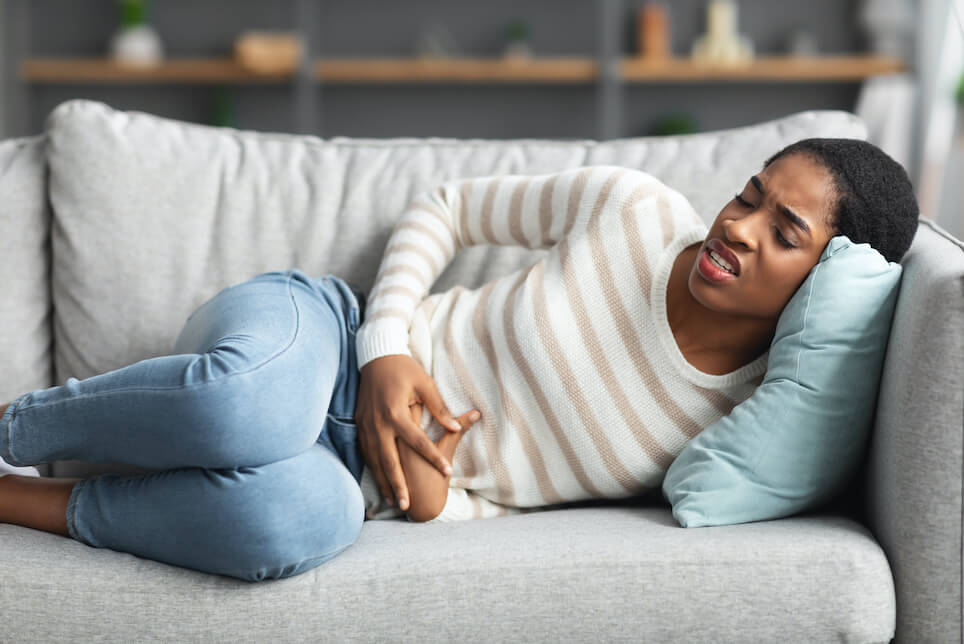While colon cancer symptoms in women can sometimes be misleading, but most women with polyps or cancers don’t realize they have it until the cancer has progressed. Find out in this article how to tell if you have colon cancer, and what colon cancer symptoms women typically experience.

Signs and Common Colon Cancer Symptoms in Women
Perhaps the most common sign you should be checking for is blood in your stool which could mean bleeding from an ulcer, hemorrhoids, or rectal cancer. Other signs could also include weight loss, weight gain, fatigue, and nausea. If this point sounds familiar, it might be time to get screened again.
Other symptoms of colon cancer in women can vary from diarrhea to vomiting and even joint pain. If you experience any serious signs you should try to see a doctor to confirm if it is indeed cancerous because these symptoms could also be indicative of something more sinister.
Colon cancer can also cause cramping, swelling and abdominal pain.
Early detection begins with self-examination. If you notice anything, call your doctor’s office immediately so they can access the colonoscopy nearby. But if you want to be proactive, you can do other things that can inch closer to finding cancer.
Causes of Colon Cancer in Women
Among the top causes for colon cancer in woman are being overweight, not getting enough exercise or physical activity, not drinking enough water, and not having children. While all these may seem like they are unrelated to each other, they all contribute to inflammation in the body.
One of the main causes of colon cancer in women is a condition called diverticular disease. This condition can cause inflammation which in turn can lead to ulceration in the bowel, perforations and bleeding. Risk factors that put one at higher risk for colon cancer include being obese, lower consumption of fruits and vegetables, a family history of a similar disorder and a diet high in red meats.
How to Prevent Colon Cancer
Taking care of your colon will not only help prevent cancer but also reduce risk for heart disease and other diseases.
A healthy diet that low in fat and fat-free dairy products is also recommended as it helps lower the risk for colon cancer. One of the best ways to prevent colon cancer is through an increase in fiber intake. Eating high-fiber foods helps decrease your risk for colon cancer, but also improves how the body handles waste.
Treatment for Colon Cancer
The type and stage of colon cancer affects the type and severity of treatment that is required. If you are diagnosed with colon cancer, your doctor will begin your treatment by performing a colonoscopy. This is done to check for any signs of metastasis or malignancy in the colon. During this exam, your doctor may find polyps on the lining of the colon that are removed either manually or using an endoscope.
Depending on the stage, colon cancer treatment could include surgery to remove the entire colon and part of the rectum, chemotherapy, radiation therapy and both conventional and alternative therapies. There are many treatment options for colon cancer. It is important to talk to your doctor about which treatment option is best for you.
The Takeaway
If you are a woman over the age of 50, make sure to check your physical condition regularly to see whether you are experiencing any of colon cancer in women symptoms mentioned above. If you notice any stomach related issues, head to your doctor.
Because colon cancer symptoms in women can be serious if neglected, an early detection is the best way to prevent it from developing further, so it’s important to be aware of any changes in bowel habits.
Enjoyed reading this article? Learn all what you need to know about breast cancer.